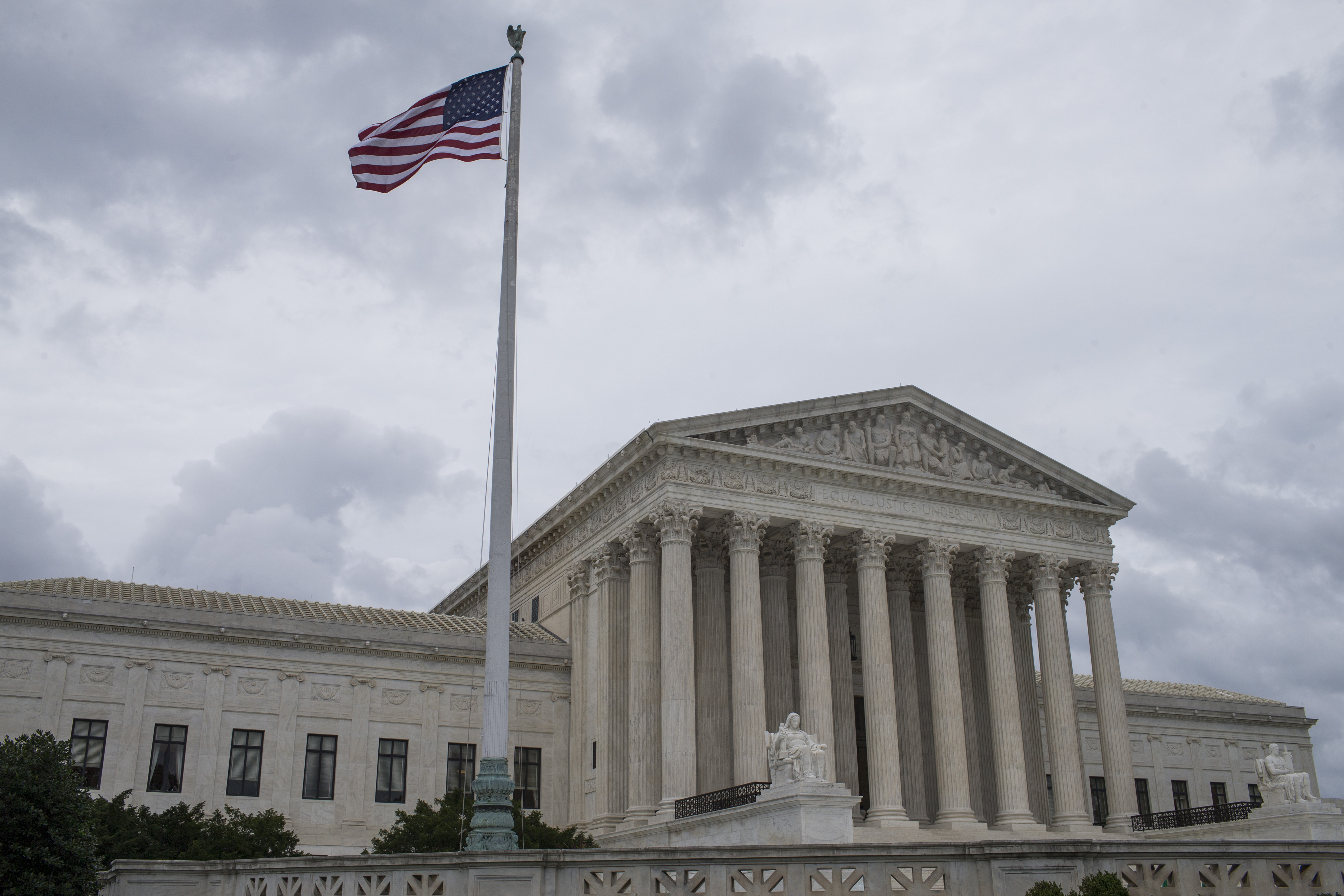Democrats make abortion focus of Supreme Court fight
Photo: () | ©AFP
Washington (AFP) – Access to abortion and health care will be at the heart of the looming battle over the appointment of a new Supreme Court justice, with all eyes on a handful of senators with the power to endorse or block President Donald Trump’s choice.
Democrats are hoping to prevent Trump from tilting the court to the hard right by tapping an ultra-conservative to replace Justice Anthony Kennedy, the tie-breaking vote between the liberals and conservatives on the nine-seat bench who retires at the end of July.
At stake, they argue, is the landmark 1973 Roe v. Wade ruling that enshrined women’s legal right to abortion at the national level.
“President Trump’s own words tell us that his nominee to the Court will almost certainly vote to overturn Roe v. Wade and eviscerate affordable access to health care for millions of Americans,” senior Democrat Senator Chuck Schumer wrote in a New York Times op-ed Monday, laying down the party’s strategy for the coming fight.
The moderate Kennedy, 81, for years kept the powerful court from moving decisively into a conservative bias favored by Republicans. His announced retirement has thrown that balance into question.
Trump said last week that Kennedy’s successor — who like all Supreme Court justices will be appointed for life — would be nominated from among a list of 25 candidates endorsed by the stridently conservative Heritage Foundation and Federalist Society.
The president is set to announce his choice on July 9. He has reportedly interviewed four candidates so far.
White House spokeswoman Sarah Sanders said that although Trump opposes abortion, he is not pressing the candidates on their views of specific cases.
“He’s looking for individuals that have the right intellect, the right temperament and uphold the Constitution,” she said.
“The president is pro-life, but in terms of the process of selecting a Supreme Court nominee… he won’t discuss specific cases with those nominees.”
The White House is aiming to have the nominee approved by the Senate in October, ahead of the November midterm elections, in which Democrats hope to seize control of one or both houses of Congress.
The Senate is closely divided — 51 Republicans to 49 Democrats.
With Republican Senator John McCain battling severe cancer and unlikely to vote, the Democrats could defeat a Trump nominee if they stay united and pull one moderate Republican senator over to their side.
One of them, Susan Collins, has already signaled the possibility she could oppose a conservative nominee.
– ‘Respect for established decisions’ –
Collins said Sunday she had asked Trump to broaden the search. She said she wants a justice who would show a strong respect for precedent — for cases already settled by the court.
“I would not support a nominee who demonstrated hostility to Roe v. Wade because that would mean to me their judicial philosophy did not include a respect for established decisions, established law,” she told CNN.
Another Republican, Lisa Murkowski, is also believed to be on the fence.
However, three Democrats facing re-election battles in November in states where opposition to abortion is relatively high — Heidi Heitkamp, Joe Manchin and Joe Donnelly — are being wooed by Trump, and met him in the White House on Thursday.
All three voted in support of Trump’s previous pick for the court, conservative Neil Gorsuch, who was approved in April 2017.
“I stressed the importance of nominating someone to the Supreme Court who is pragmatic, fair, compassionate, committed to justice and above politics — traits that match Justice Kennedy,” Heitkamp said after the meeting.
The Democratic strategy is to give each of the three cover by also making the nomination about protecting health care — the court has the power to weigh in on the extent and coverage of health care insurance.
The presumption is that most if not all of the candidates on Trump’s list would favor overturning Roe v. Wade, thus ending federally guaranteed abortion rights, if a case arose on the issue.
That would please Evangelical Christian voters who comprise an important part of Trump’s support base.
Yet according to a poll by the health-oriented Kaiser Family Foundation, some two thirds of Americans don’t want Roe v. Wade reversed.
Disclaimer: This story has not been edited by Siliconeer and is published from a syndicated feed. Siliconeer does not assume any liability for the above story. Validity of the above story is for 7 Days from original date of publishing. Content copyright AFP.


